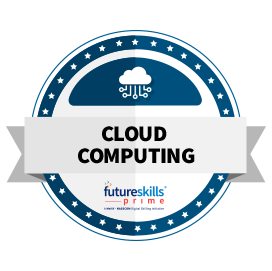Course Provider

What will you learn in Anypoint Platform Development course?
- Understand basics of Integration.
- Build an application network using API-led connectivity and Anypoint Platform.
- Use Anypoint Platform to discover, consume, design, build, deploy, manage, and govern APIs.
- Connect to databases, files, web services, SaaS applications, JMS queues, and more.
- Add application logic, handle errors, and transform data using DataWeave.
- Structure applications to facilitate development and deployment.
- Handle batch data processing.
Anypoint Platform Development: Fundamentals
-
 Skill Type
Emerging Tech
Skill Type
Emerging Tech -
 Domain
Cloud Computing
Domain
Cloud Computing -
 Course Category
Deepskilling Course
Course Category
Deepskilling Course -
 Certificate Earned Joint Co-Branded Participation Certificate
Certificate Earned Joint Co-Branded Participation Certificate -
 Nasscom Assessment Available
Nasscom Assessment Available -
 Course Covered under GoI Incentive
No
Course Covered under GoI Incentive
No -
-
 Course Price
Free
Course Price
Free -
 Course Duration
60 days
Course Duration
60 days
-
Why should take Anypoint Platform Development course?
- Design APIs, build integrations, and create connectors for any system.
- Manage all aspects of your APIs, integrations, and the Anypoint Platform, from initial deployment to ongoing operations.
- Store private assets in a central repository or access publicly shared resources.
- The underlying execution engine—a general purpose processor that is lightweight and highly performant.
- Support the auxiliary functionalities of the platform, such as temporary storage of data and message queuing.
Who should take Anypoint Platform Development course?
Professional who is going to:
- Identify the roles and responsibilities, and lifecycle phases of a typical integration project.
- Would like to recognize and interpret essential integration and MuleSoft terminology used by MuleSoft architects and developers.
- Would like to recognize common integration problems, deconstruct them into their fundamental integration use cases, and identify the appropriate technologies to solve them.
- Would like to address the common technical complexities that are central in integration development.
- Describe the components and benefits of Anypoint Platform for system integration and API management.
Curriculum:
- Integration Basics
- Introducing application networks and API-led connectivity
- Introducing Anypoint Platform
- Designing APIs
- Building APIs
- Deploying and managing APIs
- Accessing and modifying Mule events
- Structuring Mule applications
- Consuming web services
- Controlling event flow
- Handling errors
- Writing DataWeave transformations
- Triggering flows
- Processing records
Tools you will learn in Anypoint Platform Development course:
- MuleSoft-hosted Anypoint Platform to take a basic API through all the steps of its lifecycle: design, build, deploy, manage, and govern
- Anypoint Studio to build, test, and debug basic integrations and API implementations
- Connect to a range of resources including databases, files, web services, SaaS applications, and JMS queues
- Perform basic data transformations using DataWeave 2.0
- Control event flow and handle errors
- Process batch records
FAQs
Experience with an object-oriented language; A basic understanding of data formats such as XML, CSV, and JSON; A basic understanding of typical integration technologies such as HTTP, JMS, JDBC, REST, and SOAP; Any Programming Language.
A computer with - At least 8-16 GB (16 highly recommended) available RAM, 2GHz CPU, and 10GB available storage - A minimum screen resolution of 1024x768; Internet access to ports 80 and 3306 (with > 5Mbps download and > 2Mbps upload); The latest version of Chrome, Safari, Firefox, or Edge; An Anypoint Platform account (Instructor will help to Setup) Anypoint Studio 7.11.0 or later with embedded Mule 4.4 runtime (Instructor will help to Setup); Advanced REST Client 16.0.1 or later (or any other REST client application; A Salesforce Developer account (not a standard account) and API Access token (Instructor will help to Setup)



